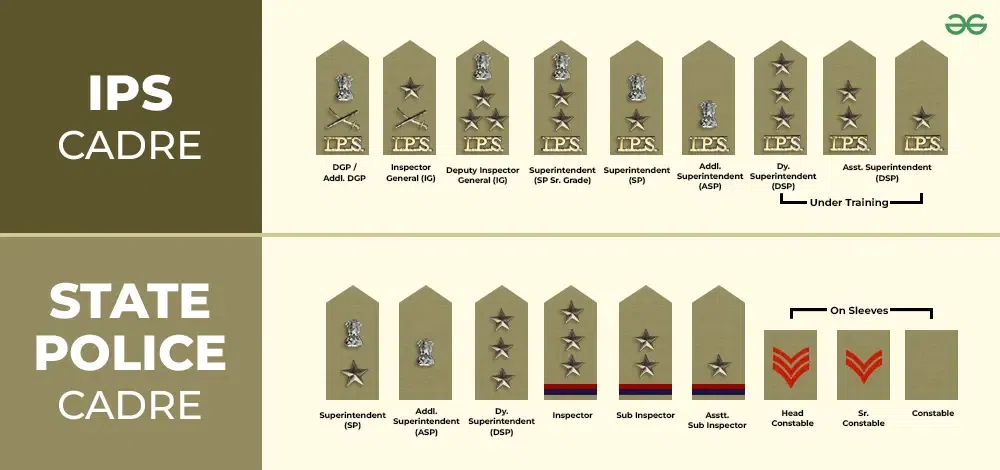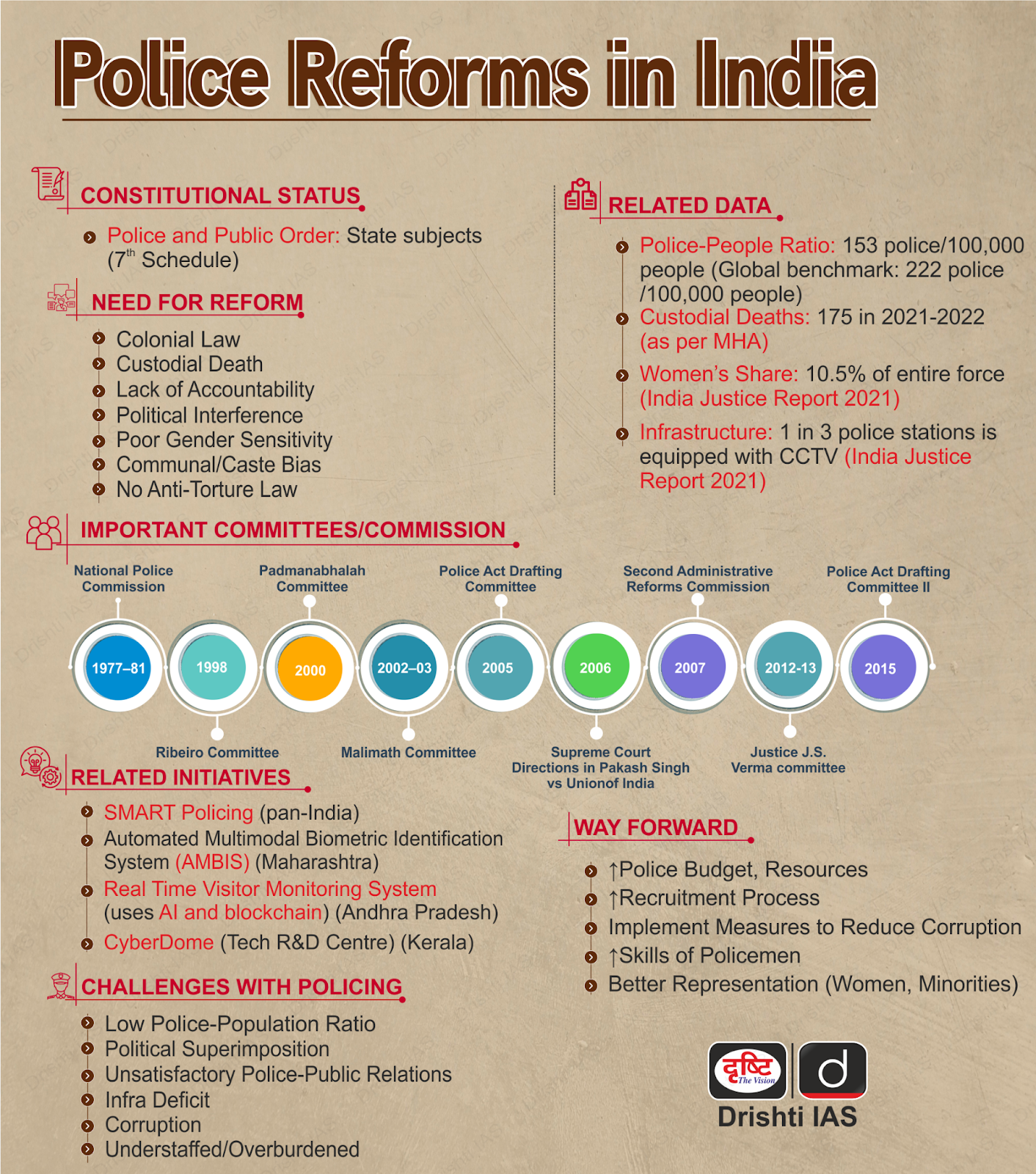Governance
Tightening Regulations for Appointing State DGPs
- 03 Nov 2023
- 6 min read
For Prelims: Union Public Service Commission, Committee to Appoint the State DGP, Prakash Singh Case 2006, Police Establishment Board
For Mains: Key Amendments in UPSC Guidelines for DGP Selection, Police Reforms in India.
Why in News?
Recently, the Union Public Service Commission (UPSC) has issued amended guidelines emphasizing specific criteria for the appointment of State Directors General of Police (DGPs).
What are the Key Amendments in UPSC Guidelines for DGP Selection?
- Clarity in Selection Norms:
- The amendments introduced by the UPSC aim to bring transparency to the previously implicit norms governing the selection process for State Directors General of Police (DGPs).
- The guidelines now explicitly state criteria to prevent favoritism and unfair appointments.
- Service Tenure Requirement:
- The guidelines stipulate that only officers with a minimum of six months of service left before retirement will be considered for the position of State DGP.
- This move aims to discourage the practice of extending tenures by appointing "favorite officers" on the verge of retirement, thereby promoting a fair and unbiased selection.
- Previously, several states had appointed DGPs who were about to retire, and some had resorted to appointing acting DGPs to avoid the UPSC selection process.
- The guidelines stipulate that only officers with a minimum of six months of service left before retirement will be considered for the position of State DGP.
- Revised Experience Criteria:
- Previously set at a minimum of 30 years of service, the guidelines now allow officers with 25 years of experience to qualify for the DGP position. This alteration broadens the pool of eligible candidates.
- Limit on Shortlisted Officers:
- The guidelines set a cap of three shortlisted officers for the DGP position, allowing exceptions only under specific circumstances.
- It emphasizes voluntary participation, requiring officers to express their willingness to be considered for the position.
- Specified Areas of Expertise:
- The new guidelines define essential areas of experience necessary for an IPS officer aspiring to lead a State Police Department.
- These areas include a minimum of ten years of experience in crucial domains such as law and order, crime branch, economic offenses wing, or intelligence wing.
- Alongside specific areas, the guidelines also stress the need for deputation to central bodies such as the Intelligence Bureau, Research and Analysis Wing, or Central Bureau of Investigation.
- The goal is to ensure a comprehensive and varied range of experience among candidates vying for the DGP position.
- Empanelment Committee's Limits on Assessment:
- Empanelment Committee established by the UPSC for the appointment of State DGP will refrain from assessing IPS officers on central deputation for the State DGP position if the Union Ministry of Home Affairs informs the State government that releasing the officers is not feasible.
What are the Supreme Court’s Directives on Police Reforms?
- In the Prakash Singh Case 2006, the Supreme Court issued seven directives to drive police reforms in India, acknowledging widespread issues such as politicization, lack of accountability, and systemic weaknesses impacting overall police performance.
- The directives include:
- Establish a State Security Commission (SSC) with the objectives of preventing undue government influence on the police, outlining policy guidelines, and assessing state police performance.
- Ensure the appointment of the DGP through a transparent, merit-based process, ensuring a minimum tenure of two years.
- Committee to Appoint State DGP:
- The committee to appoint the State DGP is headed by the UPSC Chairman and includes the Union Home Secretary, the State’s Chief Secretary and DGP, and one of the heads of the Central Armed Police Forces nominated by the Ministry of Home Affairs who is not from the same State cadre.
- Procedure of Selection:
- The State governments concerned have to send UPSC the names of the probables three months before the incumbent DGPs are to retire.
- The UPSC will prepare a panel of three officers fit to be DGP and send it back.
- The State, in turn, shall appoint one of the persons shortlisted by the UPSC.
- Committee to Appoint State DGP:
- Ensure a minimum two-year tenure for other operational police officers, including District Superintendents and Station House Officers.
- Implement the segregation of investigative and law enforcement duties within the police force.
- Create a Police Establishment Board (PEB) to handle transfers, postings, promotions, and other service-related matters for officers below the rank of Deputy Superintendent of Police, while also making recommendations for higher-ranking transfers.
- Establish a State-level Police Complaints Authority (PCA) to investigate public complaints against senior police officers for serious misconduct, and district-level PCAs to address complaints against lower-ranking officers involved in significant misconduct.
- Form a National Security Commission (NSC) at the union level to create a panel for selecting and placing Central Police Organizations' (CPO) Chiefs, ensuring a minimum tenure of two years.






